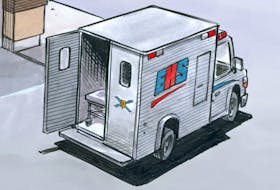Some say it’s been too long coming, others that it should never come at all, but legal cannabis is just months away, and the legal framework arrived in the Nova Scotia legislature Tuesday albeit with the acknowledgement that it’s a work in progress.
In Nova Scotia, uneven access to safe, government-controlled cannabis products remains a sore point. Initially at least, the Nova Scotia Liquor Commission will be the only legal supplier of non-medical cannabis and in just nine of its locations. Four of those are in the Halifax Regional Municipality, and the others are Amherst, Truro, New Glasgow, Sydney River and Yarmouth.
Nova Scotians in great swaths of the province – notably the Valley and the South Shore – where there will be no legal cannabis retailers, will be able to order their pot online. Exactly how that will work will be determined by the NSLC.
Nova Scotia Justice Minister Mark Furey acknowledged Tuesday that legalization has complex and significant impacts on the province, not all of which are fully understood.
“We want to make cannabis accessible in the safest manner possible,” he said Tuesday before introducing Nova Scotia’s Cannabis Control Act in the legislature and promising a public education campaign that will precede legalization, expected as early as July but, depending on federal action, could be later in the year.
Chief among the great unknowns is what it will cost the province and its municipalities to enforce the new regime, including prohibition on where cannabis can be used and by whom. The government is confident it has “sufficient fiscal flexibility” in the current year to meet those unquantified costs.
One lesson Nova Scotia seems to have learned from Washington State and Colorado, where cannabis was legalized six years ago, is to expect the unexpected.
While the legislation is explicit in its restrictions – no one under 19 can legally use cannabis, driving while stoned will be treated as harshly as driving drunk and anywhere you can’t smoke tobacco, cannabis is verboten as well – the bill vested broad regulatory powers in cabinet to adjust the rules as circumstances present themselves.
This includes the authority to expand cannabis sales to retailers other than the Nova Scotia Liquor Commission, which didn’t want to deal with the weed in the first place.
Health advocates were adamant that co-location of alcohol and cannabis sales should be avoided, but the province ignored that warning and vested responsibility with the NSLC as the best means available to control the wholesale and retail network.
The bill introduced Tuesday, however, leaves the door ajar to extending sales to NSLC agency stores or to private retailers, without having to return to the legislature and amend the law.
Broad regulatory powers are a normal feature in modern legislation, but by retaining the ability to expand the wholesale and retail trade without legislative approval, the government isn’t ruling out a more entrepreneurial pot marketplace.
It also suggests that the government understands the limited geographic retail regime it has put in place could encourage stiff competition from an entrenched illicit pot trade, and that the best defense against illegal pot sales may be a more relaxed legal retail marketplace.
Furey, a former Mountie, said he’s confident police across the province are ready to take on any added responsibility legal pot entails, including dealing with the cottage industry of illegal dispensaries. Any ambiguity about the status of those dispensaries is erased in the legislation, which includes fines ranging from $10,000 to $25,000 for operating an unauthorized pot retail outlet.
The Justice Minister acknowledged that the market will evolve, beginning with the cautious, measured approach the province is taking. As products expand, including the addition of edible cannabis next year, the retail market will take on characteristics that are difficult to anticipate.
It is prudent for the province to ensure it retains the flexibility to react effectively to changes in both the legal and illicit trade.
No one can say with certainty what legal pot will bring with it to Nova Scotia and to Canada, but given the uncertainty, the Nova Scotia government has done a reasonable job of preparing for the known and the unknown.
Jim Vibert, a journalist and writer for longer than he cares to admit, consulted or worked for five Nova Scotia governments. He now keeps a close and critical eye on provincial and regional powers.








